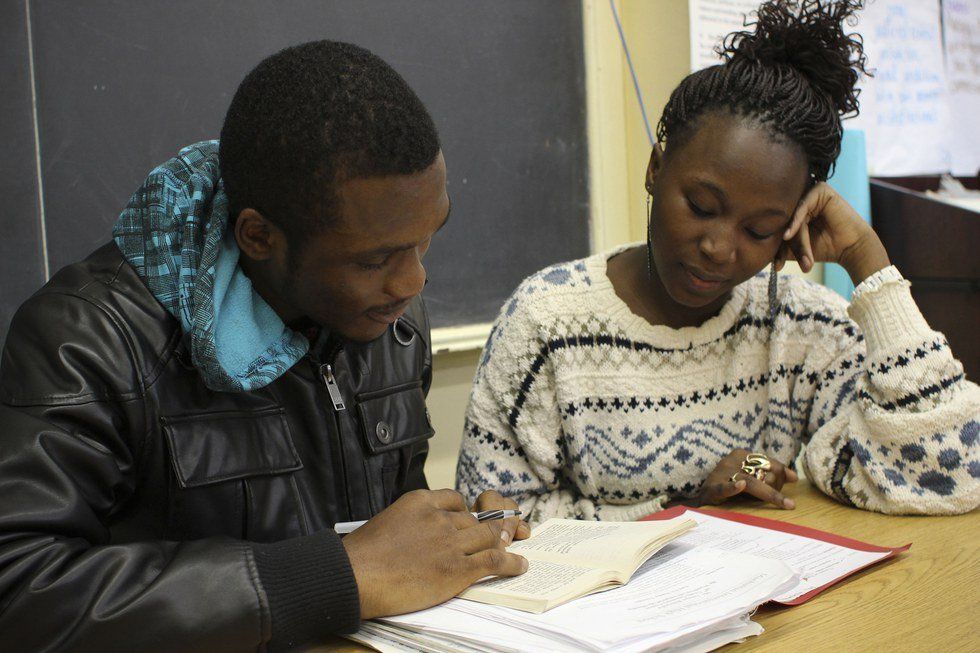When I was registering for the spring semester last year, I discovered I had two credit hours left to fill and no two credit classes available. This bothered me - I like to learn and get my money's worth out of a semester - so I embarked an adventure that would grant academic credit: the little known Writing Practicum. Students at my school can take Writing Practicum for anything ranging from internships to editing the literary journal, but I was attracted to being a teaching assistant. TAs, usually graduate students, are common at bigger universities, but there's no graduate program for writing my tiny midwestern college. Thus, that semester I was the lone undergraduate TA for a basic writing course.
It was different than I expected. I attended the class with the other students and participated in the same discussions. You wouldn't have known by just looking at me that I was some figure of authority. Then a sophomore, I remembered vividly my own freshmen writing class that had been with the same professor. I can't say I appreciated the homework (lots of reading) or all the in class activities as much as I should have at the time, but being there again gave me a wildly new perspective. I was now fielding the same questions about homework and weak excuses I had when a student.
But the real learning came from reading and teaching. Part of my job was to read student essays and give feedback. It's easier to see problems with something when someone else is making the mistake. The common essay blunders: no proof-reading, awkward phrases, logical gaps, the haphazard organization of thought; those things were easier to notice when I read one paper after another. I could better see when I made the same mistakes myself. The teaching -tutoring, really- I discovered was hard. You might think teaching consists of telling people how to do things, but that's simply not true. If you've ever had a bad teacher, you might understand. Especially when working one-on-one or in small groups, I had to pay attention. Were they understanding what I was saying? Do they know why I made that comment on their papers or why their grade wasn't fantastic? Are they learning? I have to explain things (like how to cite or use quotes) in a way that prepares them to do it alone when I'm no longer there.
Currently, I'm a UTA for a remedial writing class. This class is different because I never really wrote on their level, that is, writing analytic papers or responses to books with the writing skills far below the college level. Most of my students are very bright, but expressing that is hard. They've gone to school, but they haven't yet learned to think. Again, I learn from the students. I picked up from my first set of students how to explain concepts and how to avoid basic mistakes in my own writing (and not to make silly excuses for not doing my work!). My current crop of students are teaching me how to get people ready for deeper thinking, how to connect sharp minds and willing hearts with paper and pen.
As a TA, I've seen a lot. You aren't fooling your professor by playing with the margins or font. After seeing literally hundreds of papers, I think we can sniff out a bad margin. I can now recognize Times New Roman at 12.5 from six feet away. The typical late work excuses: you were SO busy, the computer broke, you don't know how... those aren't going to cut it more than once. Profs and TAs can be pretty sharp. But so are you. So take a deep breath, do your work and be amazed.





















